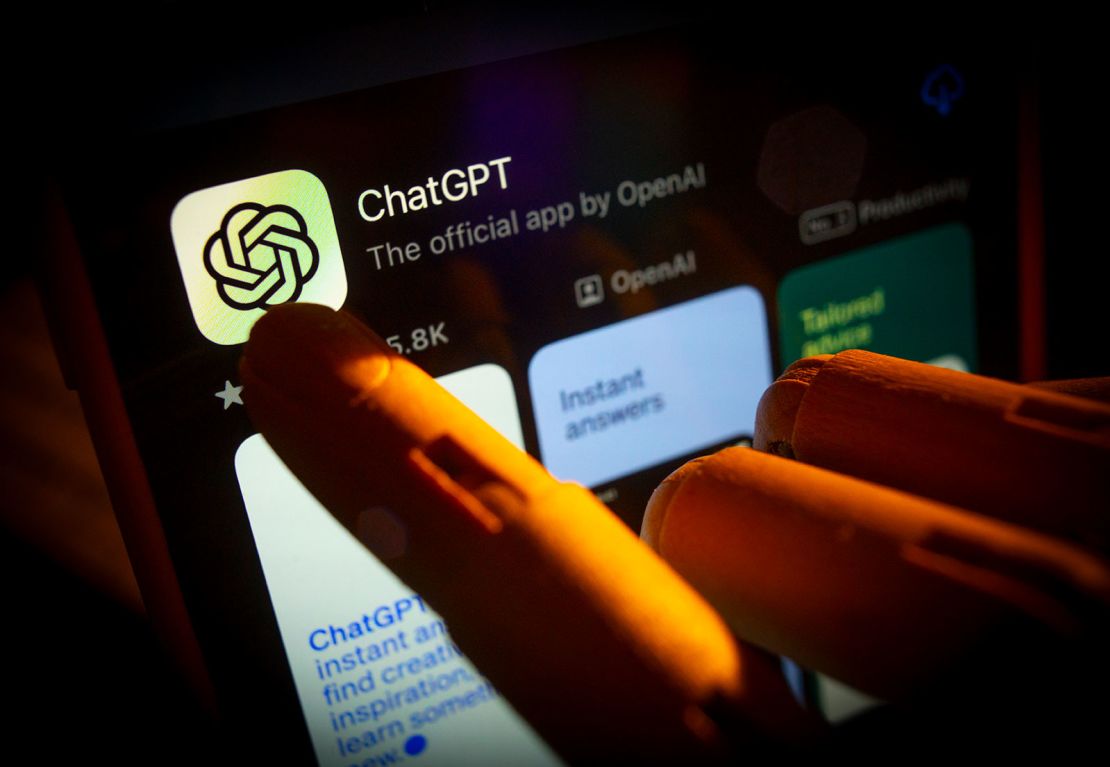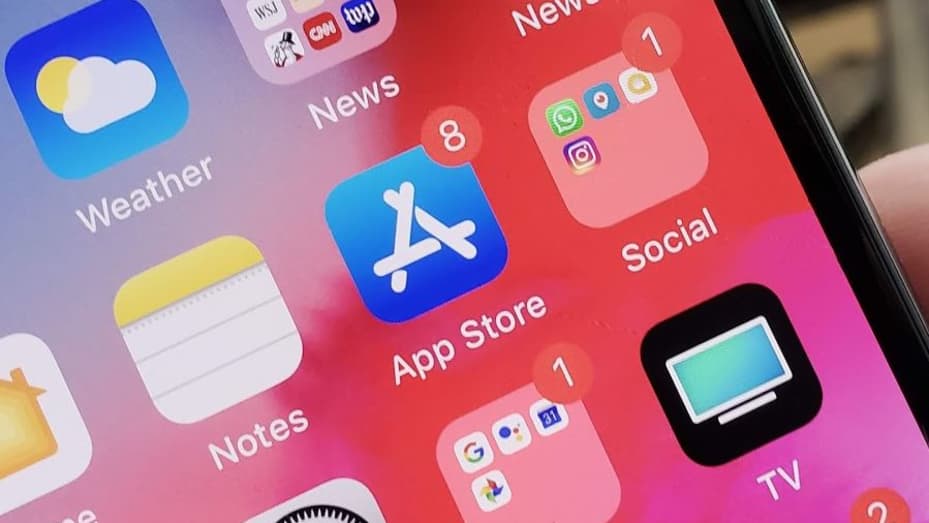Faced with a slew of obstacles, Apple is about to embark on what may be its most significant event in years.
It is widely anticipated that the firm will reveal the first set of generative AI capabilities coming to its mobile operating system and announce a cooperation with ChatGPT developer OpenAI during its annual Worldwide Developers Conference, which begins on Monday.
A significant investment in artificial intelligence (AI) might propel iPhone sales and services for years to come, since consumers—especially in China—are becoming more hesitant to replace their smartphones due to the economic uncertainty. This week, chipmaker Nvidia passed the corporation, making it the second-largest publicly traded company in the United States. The company also faces regulatory scrutiny in Washington.
During the business’s most recent earnings call in early May, Apple CEO Tim Cook stated, “We see generative AI as a key opportunity across our products and believe we have advantages that set us apart there.” He also mentioned that the company would be making an announcement in the “weeks ahead.”
The timing is particularly significant: although Apple usually studies, develops, and strives to perfect new technology for years before incorporating it into new products, the rate at which generative AI is being adopted by the public may be driving Apple’s need to release a smartphone with the newest and most advanced features.
Dan Ives, a Wedbush analyst, believes that Apple’s decision to fully embrace AI will “kick off a new frontier for Apple” and have a long-lasting effect on the company’s goods and services.
A detailed preview of what to anticipate at Apple’s major event follows:

AI abounds and becoming even more so
It is anticipated that Apple would make their AI program opt-in only and refer to it as “Apple Intelligence.” According to a recent Bloomberg story, it will require an iPhone 15 Pro or a device with an M1 chip or newer.
With Siri, the company’s unreliable virtual assistant, Apple may most obviously adopt generative AI—the trendy type of artificial intelligence that can offer considered and comprehensive answers to queries. By integrating with OpenAI’s most recent ChatGPT-4o model, the functionality might become an iPhone chatbot, propelling Siri forward.
This would make it possible for Siri to carry out particular duties, such as retrieving an old photo from the device or providing in-depth information in response to queries like the weather, news, or trivia. It might pick up on the user’s tastes and even personality over time and react appropriately.
AI-powered capabilities for the iPhone might also help users with email summaries and drafts or pulling up information on a device’s screen with a finger gesture, given how competitors have already launched generative tools. Along with voice, audio, and natural language, it is also expected to respond to users automatically and fluidly through the use of visuals and contextual clues.
According to Thomas Husson, an analyst with market research firm Forrester, “generative AI will allow the next generations of iPhones to become sixth sense, empowering us to scan and interact with the world around us” (CNN).
By incorporating AI into its own programs, like Apple Maps, iMovie, and iPhoto, it may also have an impact on Apple’s entire ecosystem. According to some observers, Apple plans to share resources to help app developers and brand owners create new experiences.

Senior analyst at ABI Research, Reece Hayden, stated he anticipates the demos at the event will highlight areas where on-device AI adds more value. Additionally, he thinks Apple will take its time describing its long-term goals.
“Apple’s entire strategic focus will be centered around AI, which will underscore the company’s ongoing research and development endeavors as well as the anticipated investments and acquisitions that the company has made to bolster its offering,” the speaker stated.
A calculated alliance
It was reported in the spring that Apple was talking to Google and OpenAI about possible partnerships to fuel its AI products. However, it is currently rumored that the business has signed a contract with the person who created ChatGPT; Apple may discuss this collaboration in more detail during Monday’s opening speech.
According to Hayden, “I would expect a formal partnership announcement if OpenAI is powering Apple’s AI capabilities because consumers and enterprises want to understand the regulations and rules, what they are signing up for, and how their data is being utilized.”
The collaboration would provide the business with a much-needed boost to innovation, but according to Hayden, it would also make it more difficult for Apple to maintain control over product development and the laws governing data collection and privacy.
Apple may run some risks if it chooses to partner with a business and a technology that have not yet gained the public’s trust. OpenAI is still being criticized for several of its methods. A group of current and past workers at OpenAI requested this week that AI businesses protect their employees who voice concerns about the technology they’re developing and be significantly more honest about the “serious risks” associated with AI.
The group demanded that AI businesses promote “a culture of open criticism” that encourages people to voice their concerns and does not penalize them for doing so, particularly in light of the fact that regulations are not keeping up with the rapid advancements in technology.
An emphasis on security and privacy
Apple has always placed a high priority on user security and privacy, and Monday’s announcements will probably continue that trend.
Businesses are aware of the grave dangers that artificial intelligence poses, which range from control issues that might lead to the extinction of humans to manipulation and the dissemination of false information. Numerous scientists and AI professionals have stated that the public needs to be better informed about the risks and preventative actions.
Apple will have to consider the consumer effects of deploying this kind of technology.
Update for Vision Pro
The Vision Pro mixed-reality headset, which was unveiled this week and went on sale in February, is probably going to receive an update from Apple.
CEO Tim Cook stated that over half of Fortune 100 organizations had already purchased an Apple Vision Pro during the company’s most recent earnings call. “We are investigating creative methods to utilize it for tasks that were previously unattainable,” he continued.
With the help of generative AI, the headset might be able to achieve even greater customisation and immersion, opening up new economic opportunities, especially in the healthcare and education sectors.
Any business interested in headsets “has to be thinking about [AI]” across all of its product lines, according to Tuong Nygugen, a director analyst at market research firm Gartner.
He stated, “They’re putting all these use cases together right now, with an emphasis on enterprise, and making a case for why this is the future of experiences and devices because nobody really knows what’s a winner yet.”
Upgrades could potentially improve sales of the pricier Vision Pro, which starts at $3,499 and has reportedly seen lackluster demand.

Other stories
-
How you may utilize a rule from the Depression era to lower the cost of your alcohol
-
Otumfuo and Akufo-Addo Support the HoodTalk Festival
-
Protecting Your Investment: Essential Insurance Coverage for Small Businesses
-
Meek Mill’s Next Album Will Focus on Africa
-
After one month of public input, Hong Kong on Friday revealed a new draft security bill that calls for life in jail for crimes like treason and insurrection.
